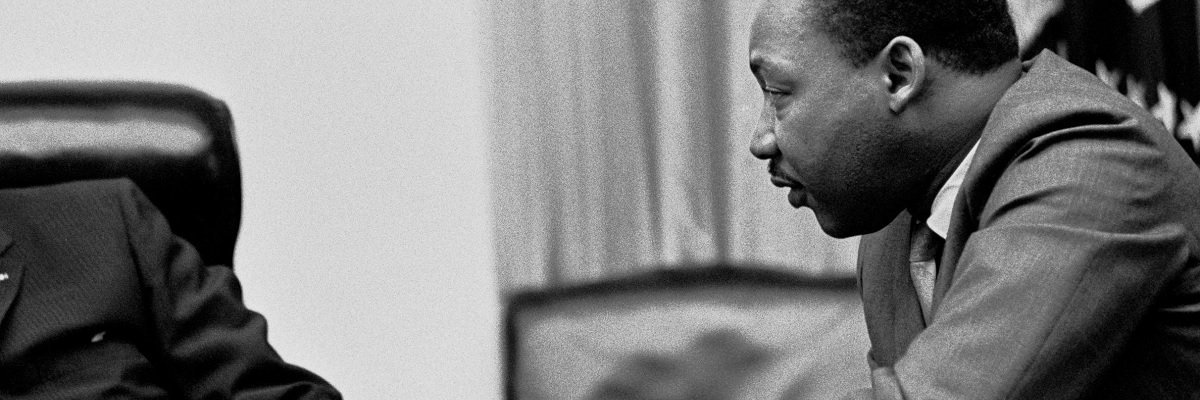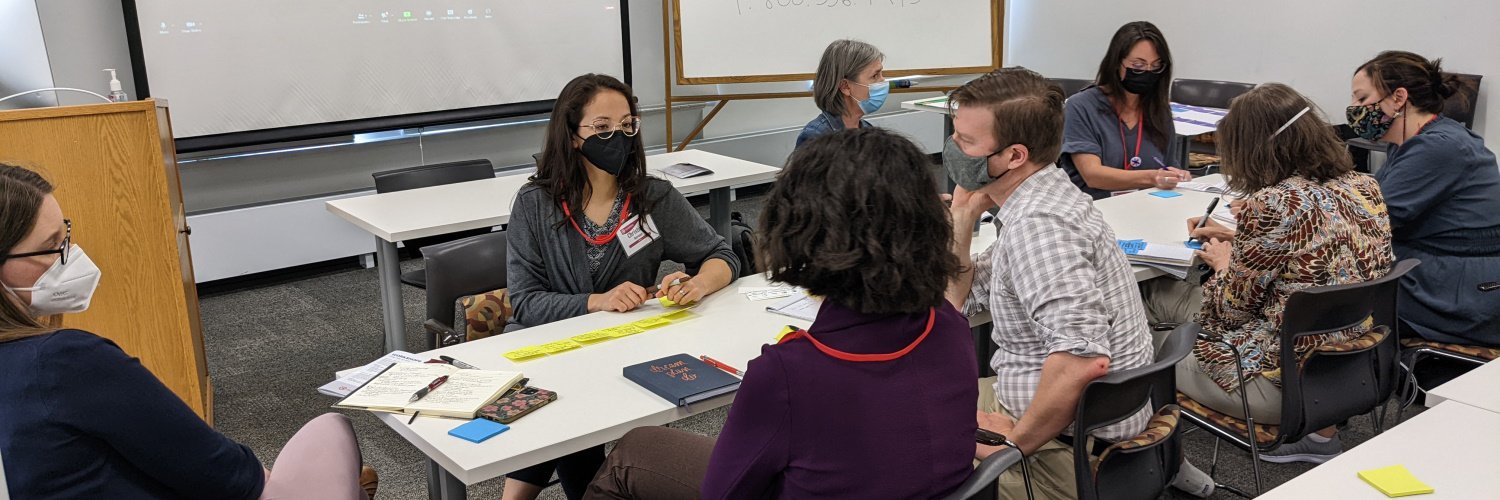While a not-insignificant percentage of the Federal Bureau of Investigation’s activities under Director J. Edgar Hoover were driven by personal vendettas, few were as well-known – or as publicly vicious – as Hoover’s feud with civil rights leader Martin Luther King, Jr. That clash quite literally came to a head on December 1, 1964, when, at the urging of President Lyndon Johnson, Hoover invited King to FBI headquarters for their first - and only - face to face meeting, captured in a ten-page memo in King’s file.
The meeting - or more precisely the pressure from Johnson to have the meeting - stemmed from a press conference Hoover had given a few weeks earlier. Hoover had always been deeply critical of King in private - offering off-the-record accounts of King’s extramarital affairs to reporters at DC cocktail parties as evidence of King’s “hypocrisy” - but he had, for the most part, kept it private. (As a brief aside, Hoover’s defenders maintain that the infamous “suicide letter” sent to King was the sole work of the FBI’s head of domestic intelligence, William “Bill” Sullivan, without Hoover’s knowledge.) However, Hoover felt comfortable enough at this particular conference, consisting of 20 female reporters from various national outlets, to respond to a question about King’s ongoing criticism of the Bureau - that it wasn’t doing enough in Southern civil rights cases - by saying how he really felt: that “King was the most notorious liar in the country.”
Cartha “Deke” DeLoach, for years the third-ranking figure in the FBI and responsible for the Bureau’s press relations throughout the ’60s, described in his book Hoover’s FBI: The Inside Story by Hoover’s Trusted Lieutenant how he spent the conference surreptitiously trying to get Hoover to retract the statement or, at the very least, retroactively claim it was off the record. Hoover not only refused but was apparently so irked by DeLoach’s perceived insubordination that he gave the reporters explicit permission to publish his remarks.
And publish they did.
America’s top law enforcer calling a man who had, just a month prior, become the youngest person to have won a Nobel Peace Prize not just a liar but “the most notorious liar in the country” generated exactly the kind of stir that DeLoach worried it would. The always media-savvy King immediately seized on the remarks, issuing a statement taking the high road, expressing sympathy for Hoover and the pressures he must be under, and saying that was all he was going to say on the matter.
King wasn’t just being polite. According to a source from within the Southern Christian Leadership Conference, this tactic was intended to allow King to direct a coordinated attack on Hoover and the FBI in private, while avoiding the appearance that it was motivated by personal grievance.
That said, according to the source King wasn’t being entirely disingenuous and did indeed feel some degree of sympathy for Hoover - though whatever goodwill that might have bought King with Hoover was undoubtedly undercut by his further remarks that Hoover - one month away from his 70th birthday - was “too old” …
and a “sacred cow” …
and his direction that others - not him - write Johnson urging him to force Hoover to retire, as he was “getting senile.”
Some of those letters apparently made it to Johnson; according to DeLoach, the flak over Hoover’s remarks got so bad that Johnson gave Hoover a direct order to patch things over with King or else. This deeply irked Hoover, who had long maintained that the Bureau had made several attempts to contact King to no avail, but Hoover was a smart enough political operator to know when to back down. The FBI contacted King’s people at the SCLC, and a meeting was arranged for the afternoon of December 1. The day after the meeting, DeLoach sent a 10-page memo to his subordinate, John Mohr, describing the historic summit in detail.
DeLoach adopted a critical tone before King had even made it inside Hoover’s office, kvetching about King’s mugging for the cameras.
However, despite the FBI’s predisposition to paint King as a provocateur, King comes off as rather conciliatory in memo, stressing the importance of a “working relationship” with the Bureau and drawing a distinction between the conduct of FBI agents and police officers.
In the same vein, King preemptively addressed the Bureau’s concerns regarding possible Communist infiltration of the civil rights movement and his own unequivocal opposition to Communism as a devout Baptist.
The mention of Communism - a favorite topic of Hoover’s - shifted Hoover from a passive to an active participant …
and from this point on, it was less of a friendly conversation and more of a stern lecture. Hoover, who later bragged that he “took the ball away from King,” began to hold court on how the Bureau was going toe-to-toe with the Ku Klux Klan …
the challenges of dealing with uncooperative state governments, particularly Alabama’s “psychoneurotic” governor, George Wallace …
and a zero tolerance policy towards agent misconduct.
Hoover then shifted towards the broader topic of the civil rights movement, telling King that his focus should be on voter registration and educational opportunities …
(though on the latter point Hoover did include his own personal opposition to busing)
and that in “due time,” there would be “change in the mores of community thinking” regarding “the racial problem.” Meanwhile, just stay out of the way and let the FBI do their job. A job which, by the way, was strictly limited in terms of what it could actually do.
Hoover then told an anecdote about a shoeshine boy that directly contradicted the point he was trying to make about the importance of education, from which Hoover recovered quickly by segueing into a discussion of black FBI agents.
Hoover noted that one such agent had concerns about being assigned to the Miami Field Office on grounds he would face racial discrimination. In Hoover’s telling, the agent did indeed face discrimination, but not due to the color of his skin - the local black community allegedly called him a “fink.”
King finally managed to get a word in edgewise, asking if that agent was still in Miami. Hoover confirmed he was and then immediately blamed the lack of representation in the Bureau’s ranks on a dearth of qualified black applicants.
Then followed a brief tangent in which Hoover praised the Bureau’s “10 or 11 Indian Special Agents” and complained how unfair it was certain communities didn’t cooperate with the FBI.
Hoover continued with a litany of injustices that agents routinely face, such as being spat upon and refused food and lodging.
Even with Hoover’s comfortable dominance over the meeting thus far, the Director of the FBI telling a room full of a civil rights leaders what it was like to be spat upon and refused food and lodging was a bit too much, and King’s colleague Ralph Abernathy tried to steer the conversation towards the importance of engendering hope and avoiding despair.
Hoover agreed and stated that more should be done to celebrate the progress that had been made so far - progress that rarely gets mentioned by the “rabble-rousers” like Bill Epton in New York.
Abernathy made it clear that SCLC did not want “rabble-rousers” in its ranks and that King deserved credit for preventing Communists like Epton and “the Muslims” (undoubtedly a reference to the Nation of Islam) from “taking over the civil rights movement.”
At this point the meeting began to draw to a close, though not before Hoover managed to get in two quick digs at the KKK, which he called “yellow” …
and perhaps the most withering criticism Hoover could offer “worse than the communists.”
While wrapping things up, King mentioned that SCLC planned to launch a voter registration campaign in Selma, Alabama early the next year and expressed concern that there is “great potential for violence” in Selma.
Hoover interrupted King (again) and outlined five separate civil rights cases that were currently being investigated in Selma, including one against Sheriff Jim Clark.
King, citing the almost certainty of a violent altercation with law enforcement, asked Hoover if it would be possible to have a FBI presence in Selma. Hoover affirmed that there would be agents at the rallies but that they would be there strictly in an observational capacity.
As it turned out, there was plenty to observe - Clark would later become infamous as the man who ordered a deputized posse on horseback to attack peaceful protesters in what became known as the “Bloody Sunday” incident. Whatever happened with his apparent FBI investigation is unclear.
King thanked Hoover for the “most fruitful and necessary meeting,” and Hoover told King that he could contact him directly whenever he needed to.
King then gave a short statement to the press gathered outside of Hoover’s office. To DeLoach’s clear annoyance, the remarks had been written prior to the meeting.
In the months to follow, both Hoover and King avoided direct criticism of each other, at least in public. While it’s unclear what King actually felt about his sit-down with Hoover, the Director, for his part, was quite pleased with how things turned out. In a report to Johnson, Hoover framed the entire meeting as a personal apology from King and a complete exoneration of the Bureau’s actions in civil rights cases.
Hoover was apparently genuine about keeping a line of communication open for King, though the two would never again meet directly. Within a decade, both men would be dead, and their brief discussion and even briefer truce would fade into obscurity after the 1975 Church Committee hearings and follow-up Martin Luther King Task Force report made public the deeply personal nature of Hoover’s feud.
Read the full memo embedded below or on the request page. A very special thanks to Russ Kick, without whom the full extent of King’s file would remain unknown.
Image via Wikimedia Commons




